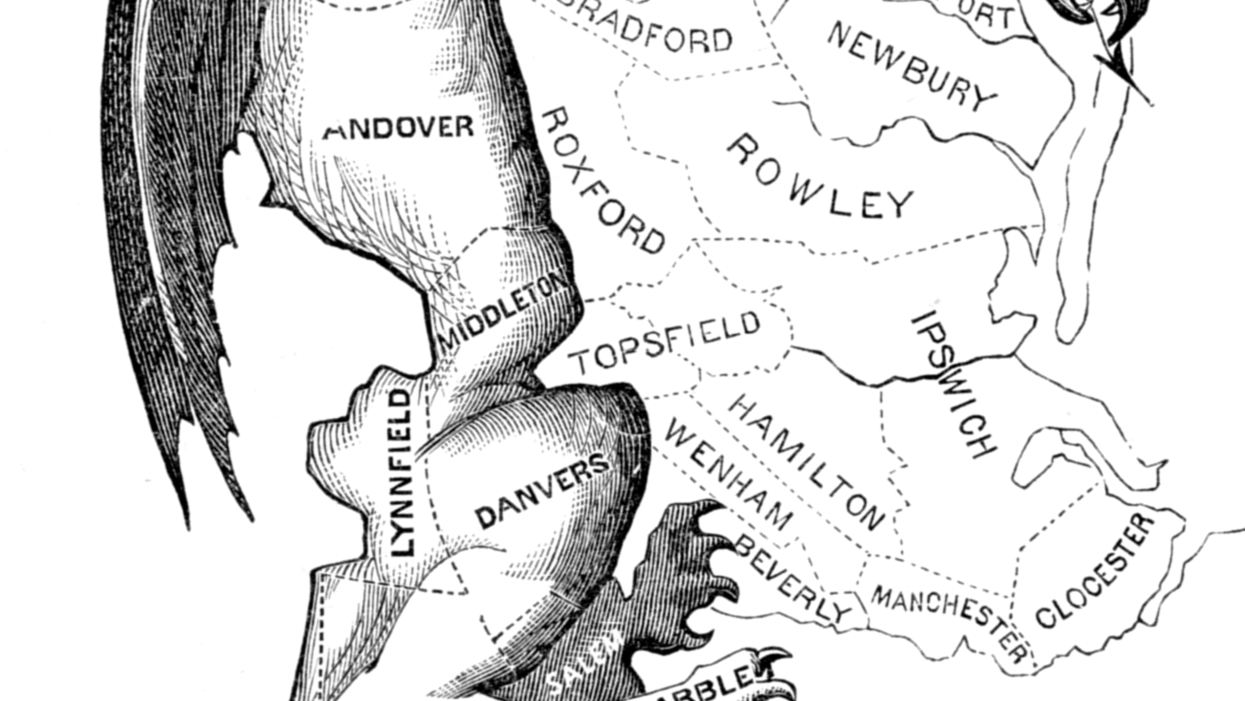Goldstone’s most recent book is "On Account of Race: The Supreme Court, White Supremacy, and the Ravaging of African American Voting Rights."
On April 27, in a divided ruling, New York’s Court of Appeals declared that the congressional redistricting map for the coming decade violated the state’s constitutional prohibition against blatantly partisan attempts to gain political advantage in the drawing of district lines.
The plan thrown out by the court radically skewed in Democrats’ favor, giving them the possibility of gaining three additional seats in the House of Representatives. Chief Justice Janet DiFiore, a Democrat appointed by former Gov. Andrew Cuomo, wrote in her majority opinion, “We reject this invitation to subject the people of this state to an election conducted pursuant to an unconstitutional reapportionment.”
Democrats were livid and Republicans thrilled because, as New York’s highest court, the ruling could not be appealed. To further the drama, the court chose Jonathan Cervas, a 37-year-old post-doctoral fellow at Carnegie Mellon University and a redistricting specialist who has gained a reputation for fairness and bipartisanship, to redraw the boundaries.
In the map that Cervas produced, published only weeks later, Democrats’ potential gains became, at best, a good deal more problematic. They may well evaporate entirely. As such, the new map did nothing to alter the mood of either party. Hakeem Jeffries, an African American Democrat denounced the plan as reminiscent of Jim Crow laws, while Trump Republican Nicole Malliotakis, whose Staten Island district would have added a hefty number of Democratic voters, praised Cervas for heeding “the will of the people.”
One man, appointed by the court, radically altered national politics. With control of the House in the 2022 midterms promising to be furiously contested, with every close race potentially the margin of majority, voiding New York’s original map could well determine which party will set the political agenda moving into the 2024 presidential race.
Contorting district boundaries for political gain is, of course, known as gerrymandering, and the practice dates from the early days of the republic. In 1812, Massachusetts Gov. Elbridge Gerry, a noted eccentric and one of few delegates to the Philadelphia Convention who refused to sign the Constitution, approved a redistricting plan designed to radically decrease Federalist Party seats in the House. One of the districts was so tortuously drawn that Gilbert Stuart, best known for his painting of George Washington, published a cartoon in the Boston Gazette depicting the boundaries in the shape of a dragon, wings and all, although Stuart thought it more reminiscent of a salamander. A friend who saw the cartoon before it was published called it a “Gerry-mander,” which was how the final caption read.
Gerrymandering was made possible because the delegates to the Constitutional Convention refused to create rules or standards for congressional elections or drawing congressional districts, leaving those to each state’s discretion. The omission was not accidental.
The delegates were aware of the deep resistance in many states to any plan that would dilute their authority; leaving Philadelphia with an agreed-on document was far from assured, after which successful ratification by the required nine states was at best uncertain. To mollify the states as much as possible, they left many key elements of governance vague and omitted some altogether.
Since many states especially feared that the new Constitution would erode their ability to self-govern, the delegates made almost no attempt to define standards for national elections. While detailed rules for drawing congressional districts would have been inappropriate for a document as broadly drawn as a constitution, minimal requirements would not have been. And those requirements could — and likely should — have been made uniform, which could easily have been achieved through the appointment of a board staffed by professionals, similar to the Congressional Budget Office, that was charged with redistricting for the entire nation. In the absence of federal oversight, state political parties soon recognized how to artificially increase their influence in Congress. And gerrymandering was born.
While gerrymandering is now standard practice, the ability to do so successfully falls unevenly on the states. Those, such as New York, which have mandated either nonpartisan commissions or judicial oversight of its redistricting process are helpless to counter states with blatantly partisan redistricting, such as Alabama or Texas.
As in New York, Alabama district boundaries are set by the legislature, currently dominated by Republicans, subject to acceptance or veto by the governor, currently also a Republican. But in Alabama, a veto can be overridden by a simple legislative majority, rather than needing two-thirds. From there, Alabama has no constitutional mandate to ensure the process is fair. Bringing suit in state court, where Republican judges predominate, has next to no chance of success. From there, the only recourse is federal court, but the Supreme Court, the final arbiter, has shown itself loath to intervene.
And so, Alabama’s current plan, which eliminated one likely African American congressional district, was upheld in Washington by a 5-4 decision by the Supreme Court, although a lower court would have required Alabama to draw a new map with two districts likely to elect Black representatives. As a result, a state with Republican registrants outnumbering Democrats 52 percent to 35 percent will send to Congress a delegation that is 86 percent Republican.
In other words, New York has been penalized for playing fair and Alabama has been rewarded for cheating. These two states are not alone, of course, nor is gerrymandering a practice that only one party resorts to in order to gain or retain power. But as a result of the lack of federal oversight, control of the House of Representatives may go to the party that behaves in the most undemocratic manner, which will also increase its influence in the Electoral College. That, in turn, creates an additional impetus to minority government, which, once embedded, has proved extremely difficult to dislodge.
Although cheating is hardly uncommon in politics, sports, business and other walks of life, it generally only works if the cheaters are not caught. Bernie Madoff was not given a bonus after being caught rigging his trading records and the Houston Astros did not gain a free pass into the baseball playoffs after being caught stealing signs. Only in politics, it seems, is being caught cheating a ticket to greater success.





















